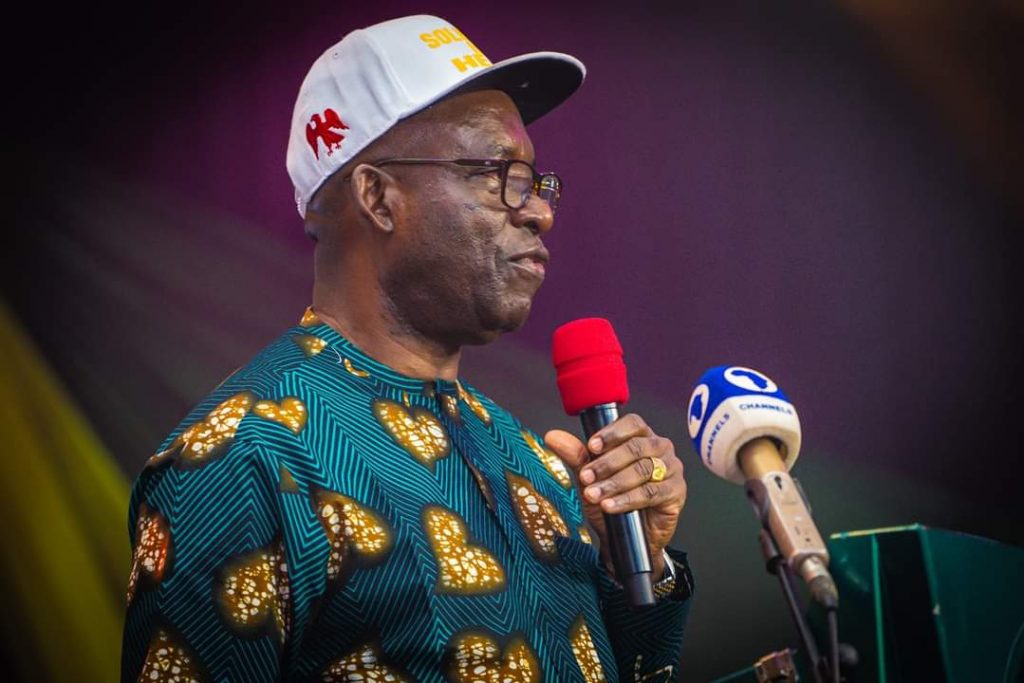It is normal for political opponents to criticize themselves on issues of politics and governance. And in a democracy, constructive criticisms are necessary as they, among other things, help to guide political office holders on the path of administrative uprightness.
In Anambra, political opponents of the state governor, Professor Chukwuma Soludo, are doing the much they can. They keep asking questions and making comments about the issue of governance in the state. That is cool. Nigerians are always encouraged to get involved in the governance of their country.
But some of these criticisms, and in some cases, attacks don’t seem to fall within the track. When you listen or read some of them, you wonder if there was more to them than meets the eye especially when they have failed to provide evidence to back up claims of misgovernance. If they have, many people, including journalists, would be glad to pick the evidence and then take the matter up from there.
Maybe we should start from the known; the ones everyone could see in the state while waiting for the evidence of none performance and other claims to be released by the dissatisfied persons who, as a matter of fact, are entitled to their various opinions and criticisms of the government.
What can be seen, touched and felt today in Anambra is that Governor Soludo is working. It is not news anymore that he has started walking his talks in the area of road and other infrastructural developments in the state. And there has been a tremendous improvement in the quality of work being done unlike in the past. From Awka to Onitsha, Nnewi to Ekwulobia, road constructions are ongoing. Put simply, Soludo has turned Anambra State into a huge construction site.
As of today, well over 400 kilometres of roads plus two flyovers are under construction in all the 21 Local Government Areas of the state, according to the figures from the state Ministry of Information. Not just that the government said so, the work being done is seen, touched and felt by Ndi Anambra and others.
In Awka and its environs, some of these road projects have been completed. And from what we saw when their construction works were going on, coupled with the verdicts of some civil engineers, there’s no doubt, whatsoever, that the roads would last for a very long time.
Beyond the road projects, the construction of other important infrastructure such as bridges and administrative buildings and others are also ongoing in various parts of the state where they are needed. There are also the renovation and equipment of some government establishments in the state.
For construction works, one of them is the new Government House that is being built in Awka, the state capital. It was gathered that the new facility would also be housing a new Governor’s Lodge. The completion of that project would mean that the about 32-year-old jinx of not having a proper Government House had been broken.
Beyond that, the construction of a coordinated drugs wholesale centre is ongoing in Oba, Idemili South Local Government Area of the state. Official information from the government showed that the drug market would be the largest in Africa when completed.
Again, there is the development of the Pharmaceutical Industrial Park in Ogboji, Orumba South LGA. Already about 15 manufacturers, out of the expected 100, had already signed up to it.
The agricultural revolution of the present administration in the state is changing the narratives in that sector. Recently, hybrid coconut and palm seedlings were shared to many households in the state. The number of the seedlings, according to the
government, was over one-point-one million with over one hundred thousand households benefiting. These seedlings were shared at the communal level to ensure that they got into the hands of those who should have them.
That move was targeted at driving poverty away, encouraging and improving agro-industrialization and supporting the efforts towards a green and environmentally sustainable state.
To save cost and to reduce carbon emissions into the atmosphere, the Soludo-led administration has converted many diesel-powered streetlights to solar, thereby promoting a clean energy generation and usage. The government placed the figure of the streetlights so converted at 25,000. That move does not only save cost for the state, it also encourages nightlife and powers its economy.
So, who could be right? Only the evidence on ground would be the judge.
Written by OBINNA ODOGWU/





Comments are closed for this post.